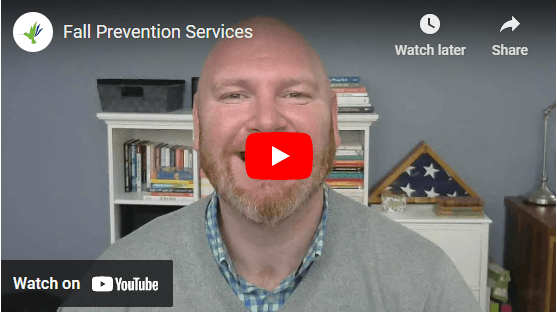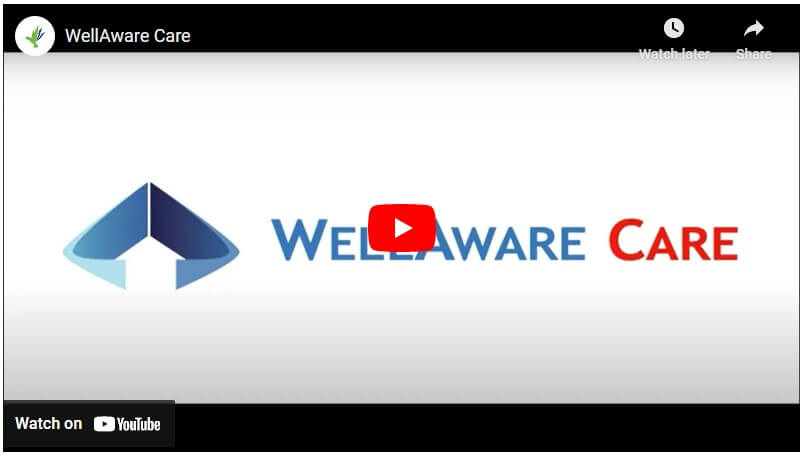




Fall Prevention

Fall prevention services are in high demand among our clients, and with good reason. Falls are not only common among seniors but also the leading cause of injury among them, resulting in a staggering 87% of fractures and accounting for 25% of hospital admissions among older adults. Shockingly, statistics reveal that one-third of seniors experience a fall each year, with the majority occurring within the familiar surroundings of their own homes.
Furthermore, the consequences of falls can be severe, with 20% to 30% of those who fall suffering moderate to severe injuries such as lacerations, hip fractures, or head traumas. These injuries not only lead to a loss of independence but also significantly impact the quality of life of older adults. Moreover, falls impose a considerable financial and time burden on family caregivers, who may need to take time off work or incur additional expenses for caregiving services.
According to the Centers for Disease Control and Prevention (CDC), the average cost of a fall-related injury among older adults is $30,000, and the total annual cost of fall-related injuries exceeds $50 billion in the United States alone. Additionally, family caregivers spend an average of 24.4 hours per week providing care to older adults who have fallen, often leading to physical, emotional, and financial strain.
Various factors contribute to the increased risk of falls among seniors, including age-related physical changes, underlying health conditions, and the side effects of certain medications. Given these concerning statistics, fall prevention emerges as a critical component in safeguarding the health and safety of our elderly loved ones.
Furthermore, various factors contribute to the increased risk of falls among seniors, with those living with dementia facing even greater susceptibility. Studies have shown that individuals with dementia are at a significantly higher risk of falls compared to their cognitively intact counterparts. In fact, research indicates that seniors with dementia are two to three times more likely to experience falls than those without cognitive impairment.
At Minute Women Home Care, ensuring the safety and well-being of your loved ones is not just our mission, but our unwavering commitment. We understand the paramount importance of implementing comprehensive measures to significantly reduce the risk of falls in the home environment. Our dedicated team of memory care professionals stands ready to provide compassionate and personalized fall prevention services, tailored to the unique needs of each individual.
Remote Monitoring Fall Detection Technology
WellAware Care integrates smart wellness devices, like Vayyar home, to detect fall events and alert caregivers in real time when assistance is needed. The WellAware Care’s remote monitoring technology captures behavioral and biometric data providing data to family caregivers enabling them to help seniors using data-driven care decisions.
How Our Fall Prevention Service Helps Makes a Difference
The reason our logo is a hummingbird is because we’re nimble and quick. When last-minute cases come in, we do everything we can to accommodate them.
That’s what Judy had heard about Minute Women, so when her mom wanted nothing more than to be in her own bed for the weekend, Judy called us.
Her mother Elizabeth had been at the hospital for over a week and was unable to sleep. She had a fall with a minor injury at her assisted living apartment but was feeling better in recent weeks. Her medical issues that caused the fall had been addressed, so she wanted to go home immediately.
The team at her assisted living had recommended 24/7 care through the weekend to ensure that Elizabeth made a full recovery. Judy completely agreed.
Judy called us at 3:00pm on Friday asking if there was any way we could send a caregiver to the assisted living facility by 7:00pm that day. Otherwise, Elizabeth would have to spend the weekend in the hospital.
Our scheduling team jumped into action. We had a caregiver at the assisted living at 7:00pm to meet the ambulance. We were able to provide 24/7 care with the same two caregivers throughout the weekend, guaranteeing consistency and punctuality. For the next few weeks, our caregivers ensured that Elizabeth was safe, preventing further injury and re-admission to the hospital.
Facts About Falls
We will go room by room with the most common areas where people fall, but first let’s go over how dangerous a fall can be.
- 87% of all fractures for seniors are because of falls
- Falls account for 25% of all hospital admissions, and 40% of all nursing home admissions 40% of those admitted do not return to independent living; 25% die within a year.
- 1/3 of the population of 65 fall each year.
4 Rooms Where Falls Occur Most Often
One of the biggest threats for seniors who live alone is falling. They happen often and in many cases, seniors can be left alone, injured, and unable to get help for hours or days. Too often these falls result in death.
With National Fall Day occurring September 25 it is a great opportunity to go over where falls occur. Also, you will learn, how you can prevent falls, so your loved one stays safe in their home for years to come.
1. Kitchen
Since water can drip on the floors that are usually wood or linoleum high, many slips occur in the kitchen.
- Keep commonly used items within reach so stretching out to get items does not occur
- Don’t use floor polish
- Keep appliance cords out of the way to prevent tripping
2. Bathroom
The bathroom is another common area where falls occur. Like kitchens, water can create a slippery floor. Additionally, falls occur in the bathroom late at night when lights are dim.
- Install grab bars next to the toilet and in the shower/tub (I highly recommend screwed-in grab bars and not suction cup grab bars. Suction cups only need to fail once to become a mistake)
- Purchase non-slip mats
- Use a raised toilet seat so it is easier to get on and off the toilet
3. Living & Dining Rooms
Falls do occur here, but not as often as the kitchen and the bathroom, but little changes can make the difference
- Arrange furniture to make it easier to get in and out of couches and chairs.
- Remove caster wheels so items do not unexpectedly move
- Rearrange lamps or change outlets so flipping a switch is all that is needed to turn on lights, rather than manually turning a lamp on or off.
- Use TV removes and cordless phones
4. Stairs & Hallways
- Keep free of clutter
- Secure carpets and remove throw rugs that are a major source of falls
- Install handrails for stability
- Make sure there is plenty of lighting
Tips To Stay Healthy, Safe, and Strong
To help prevent falls, here are some basic suggestions that go along way for many seniors.
- Getting your recommended intake of calcium with help keep bones strong.
- Getting sufficient Vitamin D from outside activities will enhance calcium absorption
- Exercising often will increase muscle and bone strength and make an individual stronger and more stable
- Getting a medical alert system will be vital in case a fall occurs a phone is not nearby.
Fall Prevention Tips
Be proactive by removing falling hazards.
A proactive plan is always preferable to seeking reactive treatment. Reduce the risk of falls inside the home by eliminating falling hazards in every room.
Kitchen Safety:
- Ensure the most used items are easily within your loved one’s reach
- Refrain from polishing the floors
- Tidy up all appliance cords
Bathroom Safety:
- Install balance bars next to the toilet & shower or tub for extra stability
- Use non-slip mats
- Install a raised toilet seat
Living and Dining Room Safety:
- Rearrange furniture, so it’s easy for your loved one to sit down & stand up from the couch, dining table, or any other seating
- Make it easy to turn lights on & off by putting them all on one switch
- Put a cordless phone in each room
Fall Prevention and Safety Ideas
In the unfortunate case that your loved one does fall, here are some proactive measures you can take to minimize the pain and damage:
Remain active. Physical activity improves flexibility, balance, and coordination. It also keeps muscles limber and joints smooth — so encourage your loved one to stick to regular walking and stretching routine. Even better, help them out by finding an activity you both enjoy doing together!
Ensure they are getting plenty of calcium & vitamin D for bone strength. Vitamin D and calcium deficiencies are all too common amongst seniors, which is why it is important to make sure they are getting enough of each. Vitamin D and Calcium Supplements help to improve bone health.
Get them a medical alert system. It is imperative for seniors to have a medical alert system that enables them to contact emergency services if they do fall. This way, medical personnel will be on their way even if the senior cannot get to the phone to call for help. The sooner the medics can get to your loved one, the better.
More Information on Fall Prevention
For more information, visit our blog post below:


